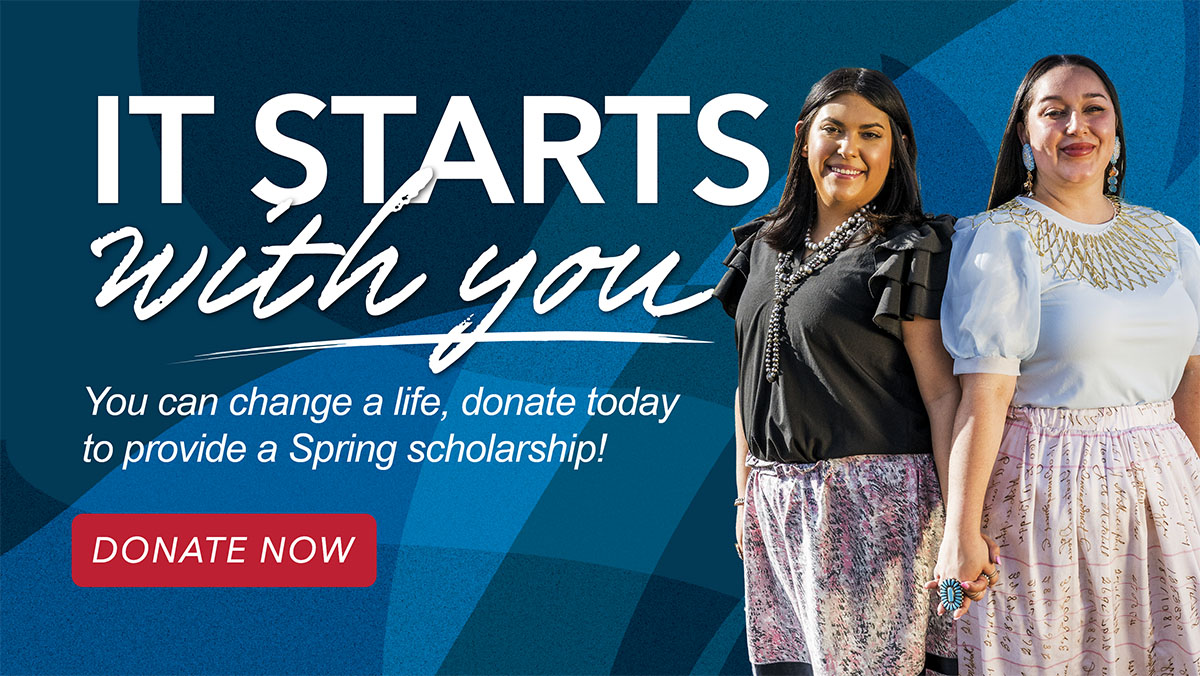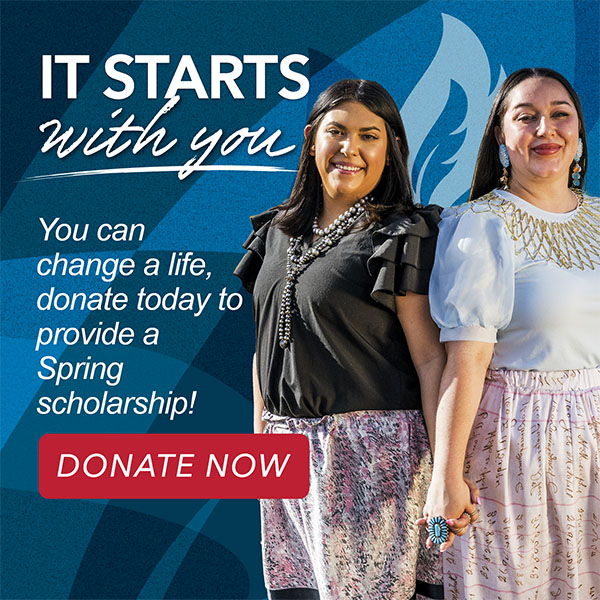Learn
Can you believe that fewer than 1% of Native stories are written by Native Authors?
For many Native people, storytelling is how knowledge is shared and passed on through generations. It is how we have learned about and protected our culture and heritage. It is how we have developed our voice and shaped our identity.
Below, we have books suitable for all age groups that facilitate a deeper understanding of Native culture and spark a sense of wonder.
Your Title Goes Here
Your content goes here. Edit or remove this text inline or in the module Content settings. You can also style every aspect of this content in the module Design settings and even apply custom CSS to this text in the module Advanced settings.
While discovering these authors, consider supporting Native-owned bookstores or going to your local library.
Native-Owned Bookstores
- Libelula Books and Co. (San Diego, CA)
- Red Planet Comics (Albuquerque, NM)
- Nā Mea Hawaiʻi (Honolulu, HI)
- Native Books (Honolulu, HI)
- Books & Burrow (Pittsburg, KS)
- Birchbark Books (Minneapolis, MN)
- Bird Cage Book Store (Rapid City, SD)
- Red Salmon Arts/ Casa de Resistencia Books (Austin, TX)
There’s no wrong time to start learning more about Native culture and experience. Based on your reading level, here are some books we think you’ll enjoy along with some discussion guides:
Preschool/ Early Education
We Are Water Protectors By Carole Lindstrom
(Turtle Mountain Band of Ojibwe Indians)
An Ojibwe girl stands up against a water pipeline to protect the water supply of her people.
Discussion Guide ↗
When We Are Kind By Monique Grey Smith
(Cree and Lakota)
Centered around indigenous characters, it celebrates everyday acts of kindness and encourages children to explore how they feel when they initiate and receive kindness.
Discussion Guide ↗
When the Trees Crackle Cold By Bernice Johnson-Laxdal
(Cree)
A picture book about the moon calendar of the northern Cree and how we are connected the seasons and nature’s cycle.
Discussion Guide ↗
Fall in Line, Holden! By Daniel Vandever
(Navajo)
A day in the life at boarding school, Holden is expected to conform to the strict rules, but he continues to lead his life with wonder and a vivid imagination.
Non fiction
Power and Place
This collection of essays explores the complex relationship between Native communities and Western educational systems. Edited by Vine Deloria Jr. and Daniel R. Wildcat, Power and Place challenges conventional approaches to learning by emphasizing the importance of place, culture, and community within education.
Discussion Guide ↗
Living Resistance
Grounded in Indigenous teachings and personal storytelling, Curtice reminds readers that healing and justice begins with how we live each day — in connection with ourselves, community, and the land. It offers a powerful call for all humans to return to balance, relationships, and everyday acts of resistance.
Discussion Guide ↗
Braiding Sweetgrass by Robin Wall Kimmerer
(Citizen Potawatomi Nation)
A nonfiction piece acknowledging that plants and animals are our oldest teachers. It offers the role of Indigenous knowledge as an alternative or complementary approach to Western mainstream scientific methodologies.
Discussion Guide ↗
As Long as Grass Grows
This non-fiction book traces the deep roots of Indigenous environmental resistance — from early colonization to the modern struggle at Standing Rock. Gilio-Whitaker reveals how Native communities have always led the fight for environmental justice by blending history, activism, and personal insight.
Discussion Guide ↗
Bloodlines
A collection of autobiographical essays offering an impactful reflection of reservation life, being a woman, and family. Through honest storytelling and deep cultural insight, Hale traces her journey across generations, revealing the strength, pain, and resilience that shape Native womanhood and community.
Discussion Guide ↗
Whiskey Tender: A Memoir by Deborah Jackson Taffa
(Quechan (Yuma) Nation and Laguna Pueblo)
A memoir of family and survival, coming-of-age on and off the reservation, and the frictions between mainstream American culture and Native inheritance, assimilation and reverence for tradition.
Race to the Truth: Colonization and the Wampanoag Story by Linda Coombs
(Aquinnah Wampanoag)
Told from the perspective of the New England Indigenous Nations that Christopher Columbus and the first colonists found when they arrived, this is the true story of how America – as we know it today – began.
Fiction
The Berry Pickers
National Bestseller, 2023 Barnes & Noble Discover Prize Winner, and Winner of the Andrew Carnegie Medal for Excellence in Fiction — this work of fiction, inspired by Peters’ father’s experience as a berry picker, explores the lasting bonds of love and the resilience of Indigenous people when confronted with trauma and grief.
Discussion Guide ↗
To Shape a Dragon’s Breath by Moniquill Blackgoose
(Seaconke Wampanoag Tribe)
The remote island of Masquapaug has not seen a dragon in many generations—until fifteen-year-old Anequs finds a dragon’s egg and bonds with its hatchling. Her people are delighted, for all remember the tales of the days when dragons lived among them and danced away the storms of autumn, enabling the people to thrive. But unfortunately for Anequs, the Anglish conquerors of her land have different opinions…
If I Ever Get Out of Here by Eric Gansworth
(Onondaga Nation)
Set in 1975, Lewis “Shoe” Blake is used to the joys and difficulties of life on the Tuscarora Indian reservation. What he’s not used to, however, is white people being nice to him – – people like George Haddonfield, whose family recently moved to town with the Air Force. As the boys connect through their mutual passion for music, especially the Beatles, Lewis has to lie more and more to hide the reality of his family’s poverty from George.
Discussion Guide ↗
The Marrow Thieves by Cherie Dimaline
(Georgian Bay Métis Nation)
In a futuristic world ravaged by global warming, people have lost the ability to dream, and that dreamlessness has led to widespread madness. The only people still able to dream are North America’s Indigenous people, and it is their marrow that holds the cure for the rest of the world.
Discussion Guide ↗
Give me Some Truth (2018) by Eric Gansworth
(Tuscarora Nation)
Carson Mastick is entering his senior year of high school and desperate to make his mark, both on and off the reservation. Starting a rock band and winning Battle of the Bands is his best shot. But things keep getting in the way.
House Made of Dawn by – N. Scott Momaday
(Kiowa)
After serving in World War II, Abel returns to Walatowa, the small town in New Mexico where he grew up. As he readjusts to small-town life, he begins a romantic affair with a white woman.
Discussion Guide ↗
Wandering Stars by Tommy Orange
(Cheyenne and Arapaho Tribes)
Colorado, 1864. Star, a young survivor of the Sand Creek Massacre, is brought to the Fort Marion prison castle, where he is forced to learn English and practice Christianity by Richard Henry Pratt, an evangelical prison guard who will go on to found the Carlisle Indian Industrial School, an institution dedicated to the eradication of Native history, culture, and identity. A generation later, Star’s son, Charles, is sent to the school, where he is brutalized by the man who was once his father’s jailer. Under Pratt’s harsh treatment, Charles clings to moments he shares with a fellow young student, Opal Viola, as the two envision a future away from the institutional violence that follows their bloodlines.
Ancestor Approved: Intertribal Stories for Kids by Cynthia Leitich Smith
(Muscogee Creek Nation)
Native families from Nations across the continent gather at the Dance for Mother Earth Powwow in Ann Arbor, Michigan. Young protagonists meet relatives from far away, mysterious strangers, and sometimes one another (plus one scrappy rez dog).
Discussion Guide ↗
Love Medicine by Louise Erdrich
(Turtle Mountain Band of Chippewa Indians)
A lyrical account of three generations of a Chippewa Indian family. Across 14 chapters, seven different narrators relate the particulars of the American Indian experience.
Discussion Guide ↗
Never Whistle at Night: An Indigenous Dark Fiction Anthology edited by Shane Hawk (Cheyenne & Arapaho Tribes of Oklahoma) and Theodore C. Van Alst (Mackinac Bands of Chippewa and Ottawa Indians)
These wholly original and shiver-inducing tales introduce readers to ghosts, curses, hauntings, monstrous creatures, complex family legacies, desperate deeds, and chilling acts of revenge. The stories are a celebration of Indigenous peoples’ survival and imagination, and a glorious reveling in all the things an ill-advised whistle might summon.
Surviving the City by Tasha Spillet
(Cree)
This graphic novel follows Dez and Miikwan, two teen friends who live in Winnipeg. Dez is facing placement in a group home as her grandmother becomes too ill to care for her any longer.

Book Club
Series
A virtual series connecting you to Native stories by Native authors
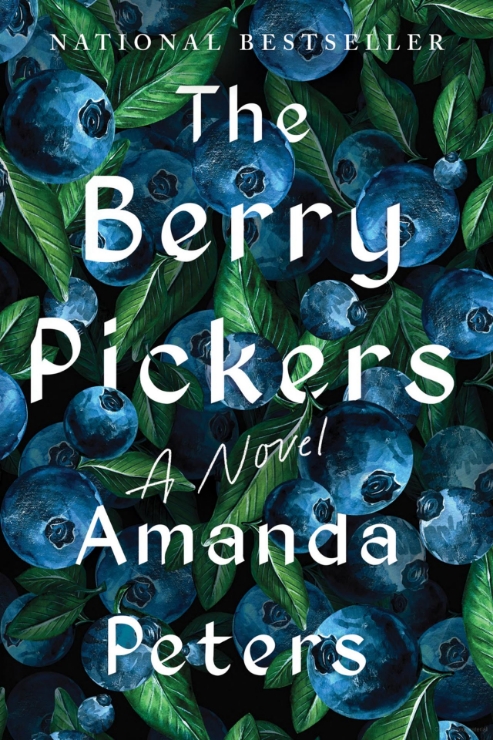
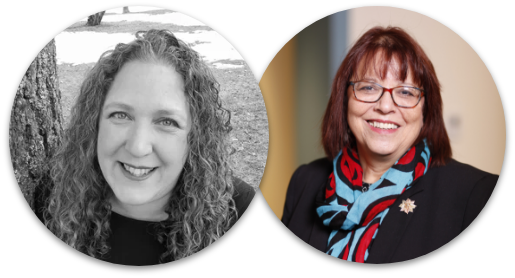
Discussing the novel
‘The Berry Pickers
By author Amanda Peters (Mi’kmaq)
Hosted by American Indian College Fund President Cheryl Crazy Bull
Tuesday, November 18, 2025 • 1pm – 2pm MST • Free Virtual Event
Virtual Book Club
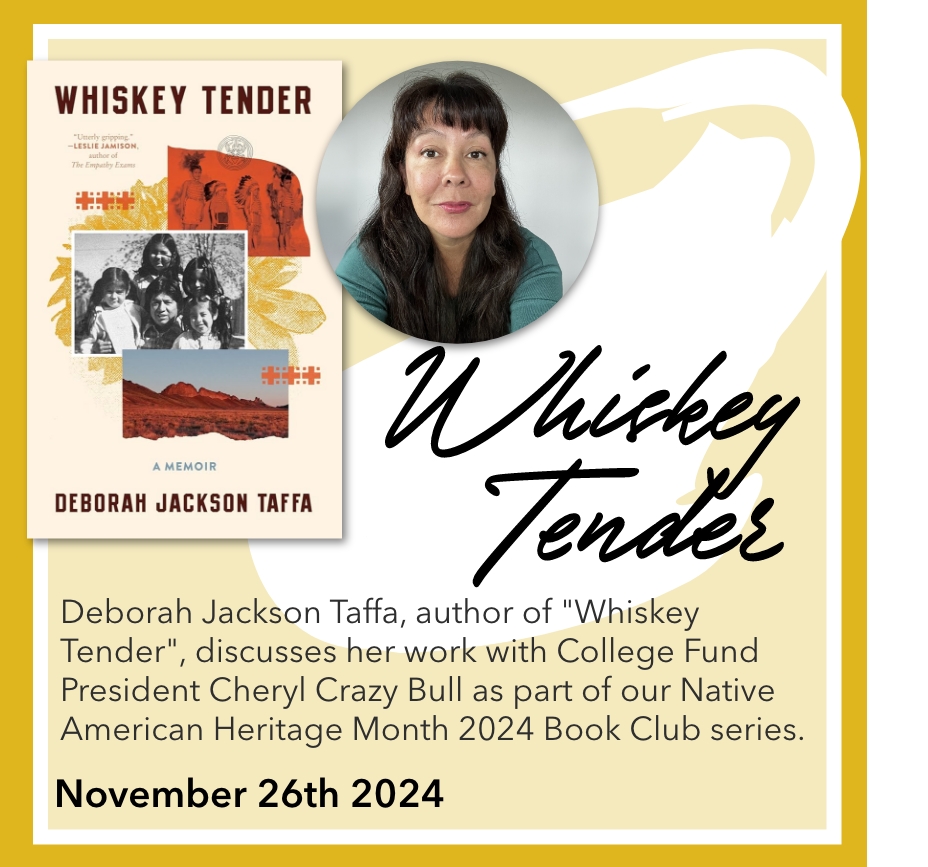
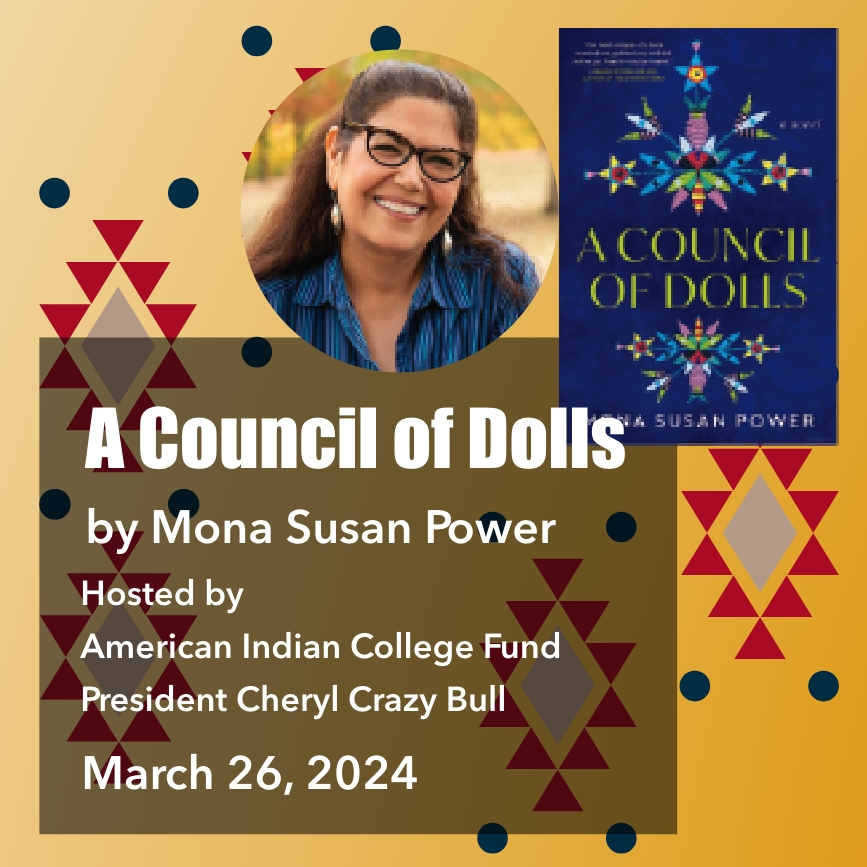
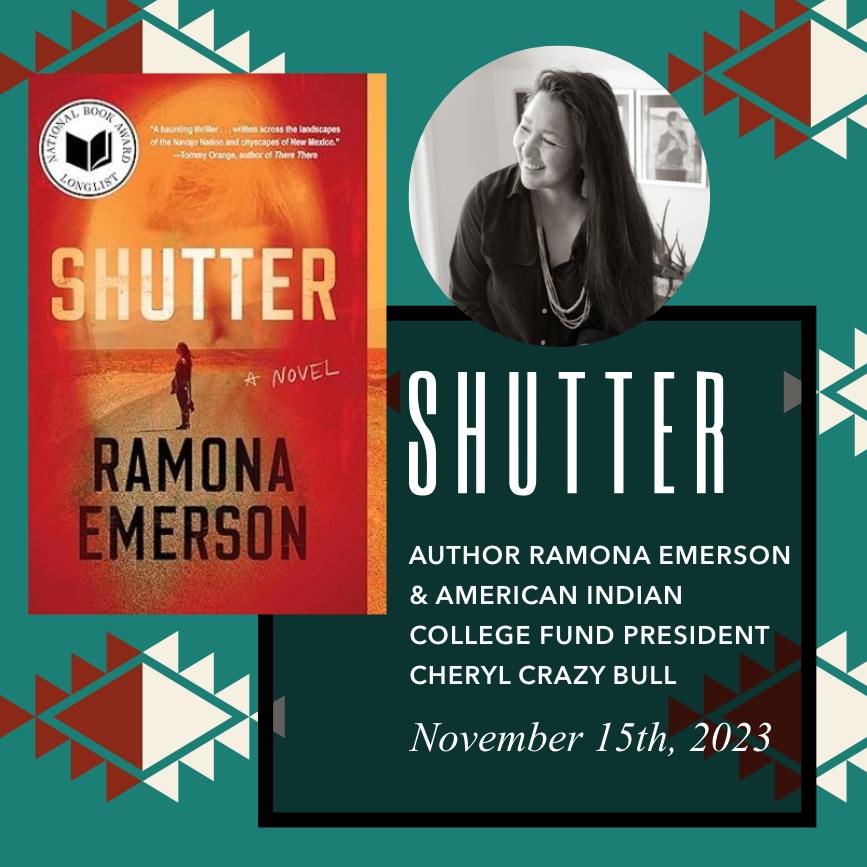
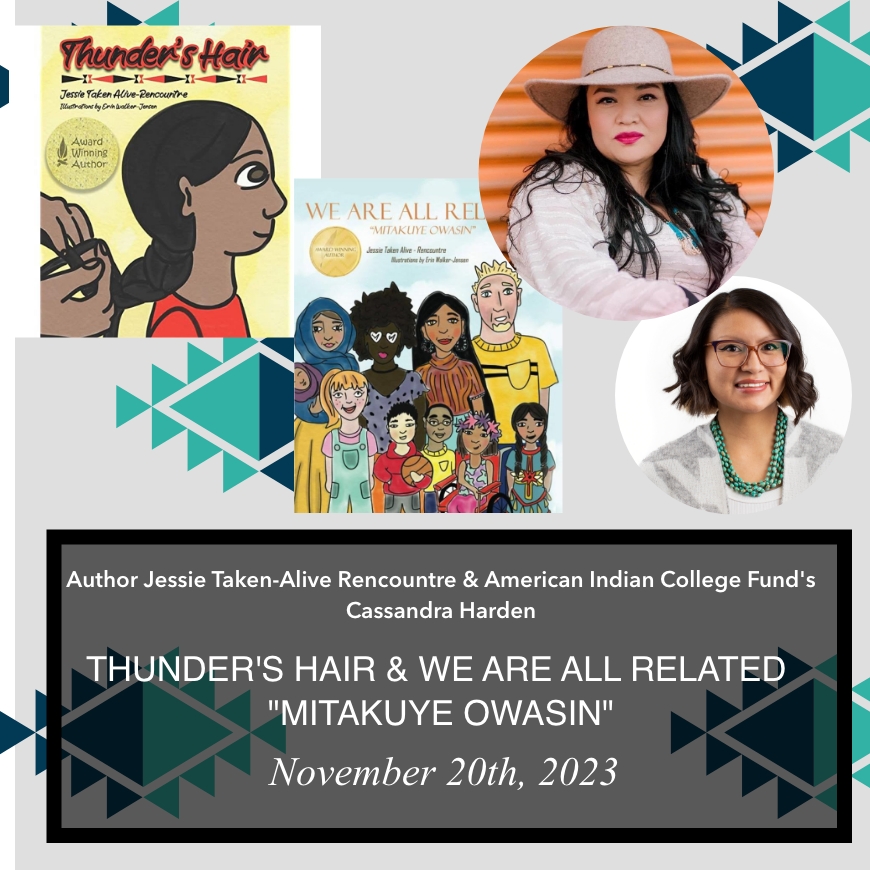
Podcasts
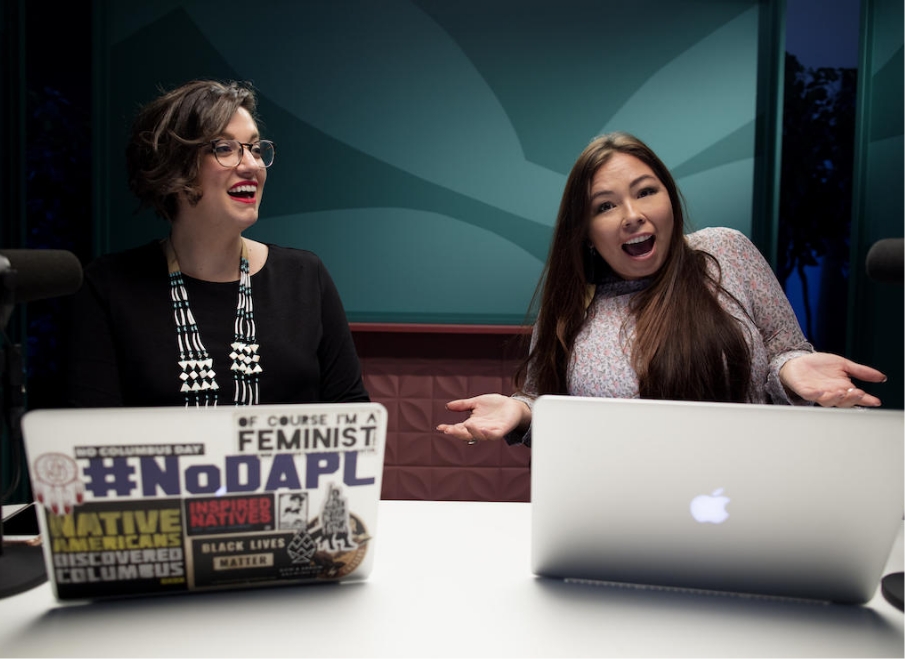
All My Relations Podcasts hosts Adrienne Keene (left) and Matika Wilbur (right).
Whether you’re in your car, out on a walk, or just relaxing at home, you can always be a part of the conversation. By listening to Native-led podcasts, you can hear the stories of our past from Natives who are here today. Consider our perspectives, feel our emotions, laugh with us as we joke around, and most importantly, connect with us.
Your Title Goes Here
Your content goes here. Edit or remove this text inline or in the module Content settings. You can also style every aspect of this content in the module Design settings and even apply custom CSS to this text in the module Advanced settings.
To help start you on your listening journey, here are some of our favorite Native podcasts:
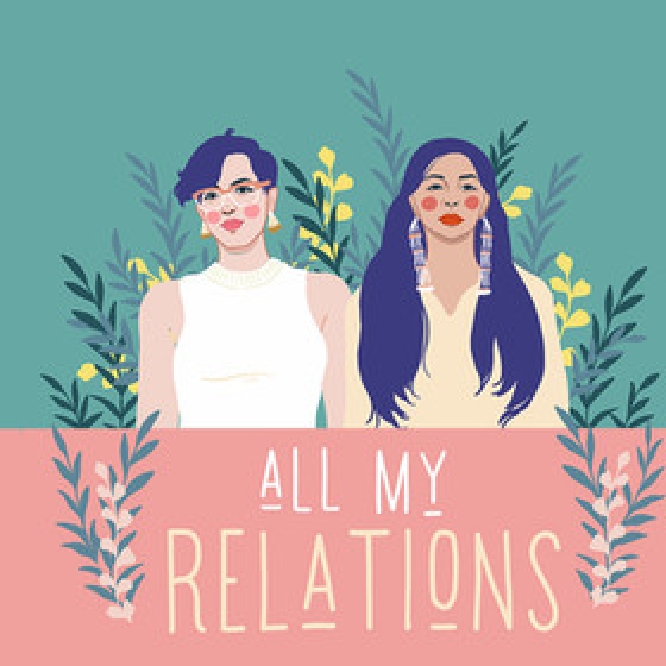
All My Relations:
Hosts Matika Wilbur (Swinomish and Tulalip), and Dr. Adrienne Keene (Cherokee Nation) invite special guests to laugh and get real as they explore the complexity of being Indigenous.
Apple Podcasts Spotify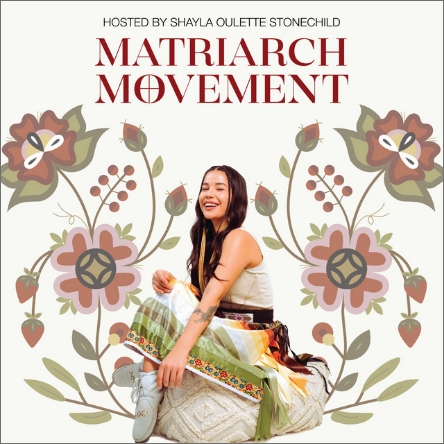
Matriarch Movement:
Host Shayla Oulette Stonechild uses storytelling to introduce us to inspiring Indigenous women whose lives will enrich and inspire other women for the next seven generations.
Apple Podcasts Spotify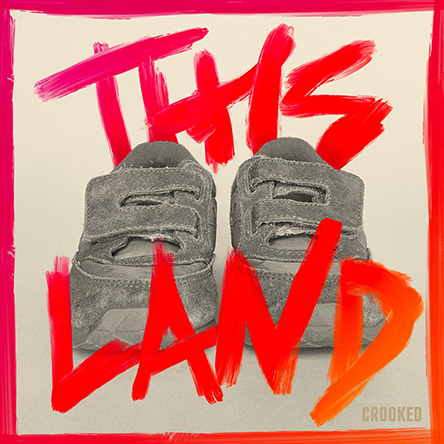
This Land
In season 2 of this award-winning documentary podcast, Host Rebecca Nagle takes us into how the far right is using Native children to attack American Indian tribes and advance a conservative agenda.
Apple Podcasts SpotifyLearn How To Write Your Land Acknowledgement
We continue to advocate finding ways to celebrate and respect indigenous communities. One of the best
and accessible ways of doing this is to acknowledge the land that was originally connection to the
array of Native peoples.
EXPLORE WAYS TO CELEBRATE TOGETHER
There are many ways to immerse yourself in Native culture and appreciation. From social dances to a virtual book club with our President and CEO, Cheryl Crazy Bull, everything you need is below. We have also included resources like discussion guides and videos to create a rich and interactive experience.







